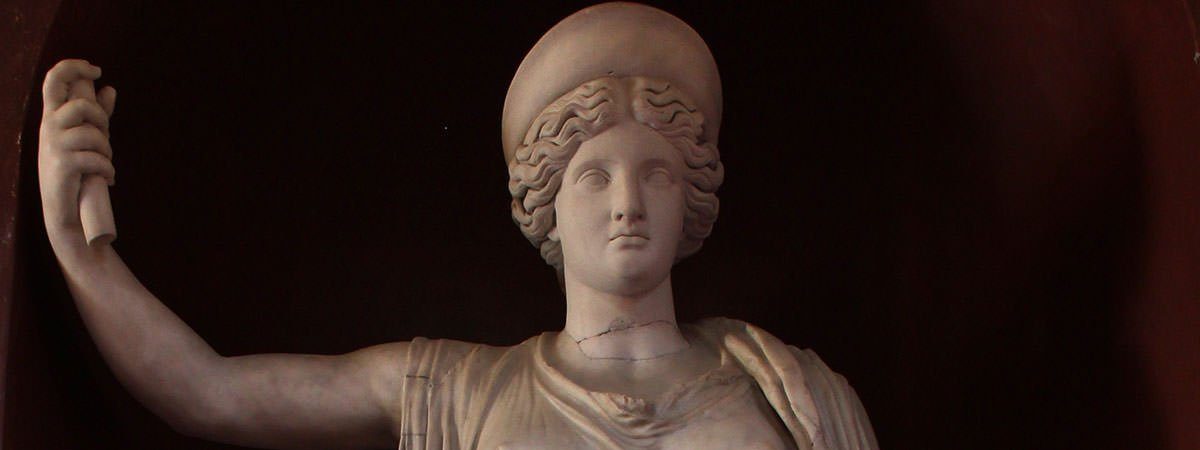Hera was the Ancient Greek goddess of women, marriage, family and childbirth. She was one of the most prominent figures in Greek mythology and there are numerous myths featuring her. Hera was swallowed by her father Cronus on birth and it was through the help of her brother Zeus that she was finally disgorged by her father. Later, Hera was taken as wife by Zeus and she ruled over Mount Olympus as queen of the gods. Though Hera remained faithful to Zeus, Zeus had numerous affairs which often resulted in Hera cursing the women involved with her husband. This had led to her being portrayed as a jealous wife in popular culture. However, to the ancient Greeks, Hera was one of the most important deities and there was even a festival dedicated to her which was called Heraia. Know more about the birth, husband and children of the Greek Goddess Hera as well as her standing in ancient Greece through these 10 interesting facts.
#1 HERA IS THE GODDESS OF MARRIAGE, FAMILY AND CHILDBIRTH
In ancient Greek religion and myth, Hera is the goddess of women, marriage, family and childbirth. Hera was seen as a matronly figure who was the patroness and protector of married women, presiding over weddings as well as blessing marriages. Hera is usually depicted with the animals she considers sacred: cow, lion and peacock. She is portrayed as a majestic and solemn goddess, sitting on a throne, and holding a pomegranate in her hand. The pomegranate in ancient Greece was an emblem of fertile blood; hence it is shown as being held in the hands of the Goddess of marriage and family. The word Hera is often connected with the Grek word hora, which means season, and is interpreted as “ripe for marriage”. This makes sense given Hera’s status as the Goddess of marriage. Hera is also likely to be the first deity that the Greeks dedicated an enclosed roofed temple sanctuary to. This temple was built in Samos around 800 BCE and was eventually replaced by the Heraion of Samos which is one of the largest Greek temples.
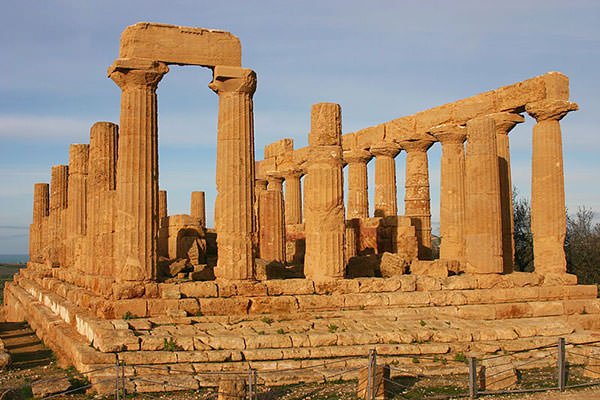
#2 SHE IS ONE OF THE 12 OLYMPIAN GODS
Hera is one of the 12 Olympian Gods. The Olympians are a race of deities who are a third or fourth generation of immortal beings. They were worshiped as the principal deities of the Greek pantheon and reside atop Mount Olympus. The Olympians managed to become supreme deities after a 10-year struggle, where Zeus led his siblings to victory over the Titans who were the ruling deities at the time. Although there are a number of immortal residents at Mount Olympus, only 12 of them are considered the most important ones. These include the children of Titans Cronus and Rhea; namely Zeus, Hera, Poseidon, Demeter and Hestia; along with the main offspring of Zeus; namely Athena, Apollo, Artemis, Ares, Hephaestus, Hermes, Dionysus and Aphrodite. Being the sister-wife of Zeus, Hera had a place of prominence among the 12 Olympian Gods and was considered the Queen of Gods

#3 SHE WAS BORN AFTER SHE WAS DISGORGED BY HER FATHER
According to Greek mythology, Cronus overthrew his father Uranus and ruled over the world along with his wife Rhea. However he was told that one of his children would go on to overthrow him like he had overthrown his father. Cronus had several children with Rhea including Hera but swallowed them all at birth. However, when her sixth child Zeus was born, Rhea hid him in a cave and instead gave Cronus a stone wrapped in his clothes which he swallowed. When Zeus came of age, he disguised himself as an Olympian cup-bearer; poisoned his father’s wine with a potion; and tricked him to drink it. This led to Cronus disgorging Zeus’ siblings: his sisters Hestia, Demeter and Hera; and his brothers Hades and Poseidon. Along with his siblings, the Hecatonchires, and the Cyclopes; Zeus then fought against Cronus and the other Titans. He emerged victories and overthrew Cronus. Later, Hera was taken as wife by Zeus and she ruled over Mount Olympus as queen of the gods.
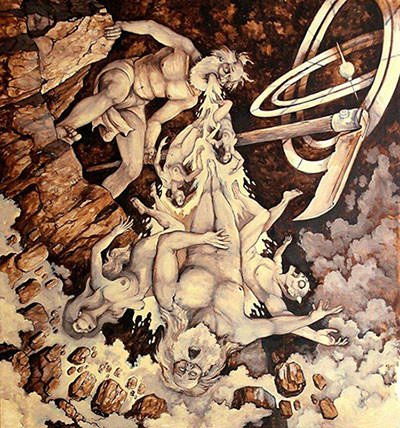
#4 SHE WAS BROUGHT UP BY THE SEA GODS OCEANUS AND TETHYS
Hera was fostered by the sea gods Oceanus and Tethys when she was very young. Her mother Rhea, afraid that she would be harmed by her father Cronus, gave Hera to Tethys and Oceanus for safekeeping. This was at the time when Zeus was engaged in a major struggle to overthrow the Titans. Oceanus was the God of the river Oceanus (according to ancient Greek mythology the entire Earth was surrounded by this river) and his wife Tethys came to be associated with the sea. Oceanus’ palace was in the west, which is where Hera was brought up by him and Tethys. Hera always remembered her foster parents very fondly and even tried to reconcile them later in life when they were angry with each other. Oceanus and Tethys were models of matrimonial fidelity; and it may thus be deduced that this was the reason why Hera always remained faithful to Zeus despite his frequent affairs.

#5 HERA WAS TRICKED BY ZEUS INTO MARRYING HIM
Zeus fell in love with Hera as she was the most beautiful of the immortals. However, Hera refused his advances. Zeus knew that Hera had great love for animals and other beings. He transformed himself as a cuckoo, flew outside her window and pretended to be in distress due to the cold. Hera felt pity for the bird, took it inside and held it to her breast to warm it. Zeus then transformed back into himself and raped her. Hera, ashamed of being exploited, agreed to marriage with Zeus. Even after marriage, Zeus kept having sexual relationships with immortal as well as mortal women. There are numerous myths in which Hera plotted the demise or cursed these women. For her part, Hera always remained faithful to Zeus and was jealous of his affairs.
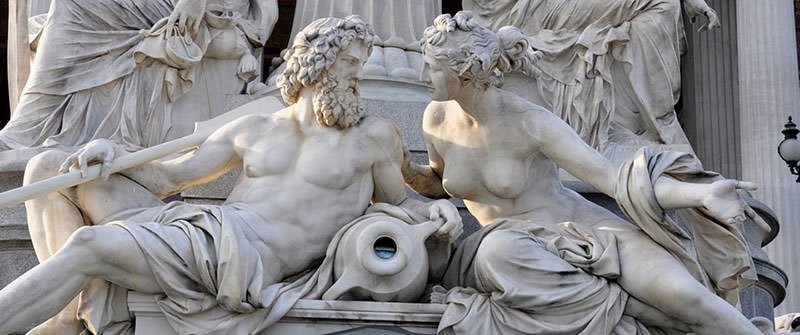
#6 SHE WAS THE MOTHER OF ARES, ILITHIYA, HEPHAESTUS AND HEBE
Hera gave birth to 7 children, of which Ares, Hephaestus, Hebe and Eileithyia are the best known. Ares is the son of Zeus and Hera and is also known as the God of War. He fought on the side of the Trojans during the famous Trojan War. According to legend, Hera gave birth to Hephaestus without a union with Zeus. She was so disgusted by his ugliness that she threw him from Mount Olympus. In order to take revenge, Hephaestus effectively imprisoned Hera by building a magical throne for her, which she couldn’t leave no matter how hard she tried. He only released her after he was given Aphrodite as his wife. Hebe and Eileithyia are the daughters of Zeus and Hera. While Hebe is the Goddess of youth, Eileithyia (Ilithiya) is the Goddess of childbirth. While Hera dedicated herself to the protection of married women, Eileithyia became responsible for women in childbirth. She was able to delay or prevent births as well.
#7 HERA WAS CONSIDERED THE MOST BEAUTIFUL AMONG THE IMMORTALS
Hera is often regarded as the most beautiful of the immortals. She took great pride in her beauty and accentuated it with sandals, chariot and a throne, all made of pure gold. She also wore a high, cylindrical crown that made her look even more beautiful. Given Hera’s jealous nature, she was quick to get angry if she felt her beauty was threatened. Antigone, the daughter of Laomedon, boasted about her hair being more beautiful than Hera’s. In a fit of anger, Hera turned Antigone’s hair into serpents. Similarly, she held a long grudge against Paris when he declared Aphrodite to be more beautiful than her. This played a big role in the Greeks winning the Trojan War as Hera did her best to ensure that they won the war through her indirect deceptions as well as direct interventions.
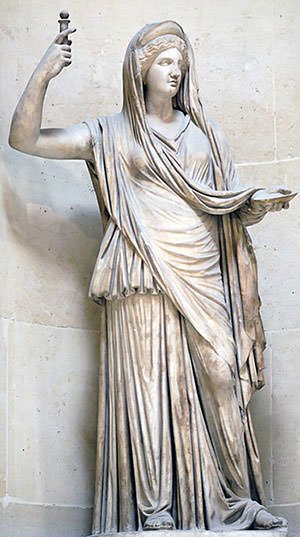
#8 THE WORD ECHO HAS ITS ORIGINS IN A MYTH ASSOCIATED WITH HERA
Echo was a mountain nymph that lived on Mount Kithairon. Hera’s husband Zeus liked to visit nymphs and Hera would follow him and try to catch him in the act. However, Echo would distract Hera by engaging her in long conversations and flattering her. This gave Zeus time to get away and visit the nymphs without being disturbed. Finally, Hera discovered that Echo was deceiving her so that Zeus could get away with his affairs. In order to punish her, Hera cursed Echo to only be able to repeat the words of others and not be able to frame any sentences of her own accord. In fact, the modern-day word “echo” can be traced in origin to this very myth.
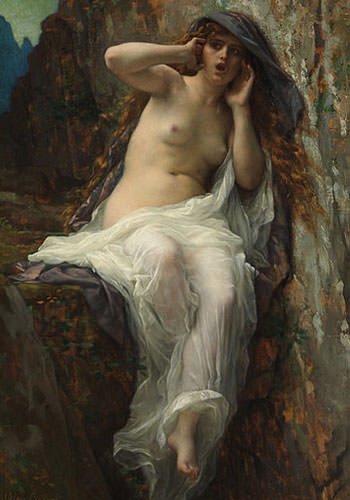
#9 THE HERAIA FESTIVAL WAS HELD In Her Honor
In some cities in ancient Greece, an all-female athletic competition called the Heraia was held every fourth year. The competition consisted primarily of foot races for unmarried women and was a way of honoring the Greek Goddess Hera. The race was however one-sixth of the length of the equivalent race for men. The festival was presided by a group of sixteen women. These women would weave a robe for Hera after which the games were held. The first to run were the youngest, followed by those who were next in age and so on, until the oldest of the maidens ran. While running, the maidens’ hair would hang down and they wore a tunic that would reach a little above the knee, with their right shoulder and breast left bare. The Olympic stadium was reserved for the games. The winning maidens were given crowns of olive and a portion of the cow that was sacrificed to Hera as part of the festivities. They were also permitted to dedicate statues inscribed with their name to Hera.
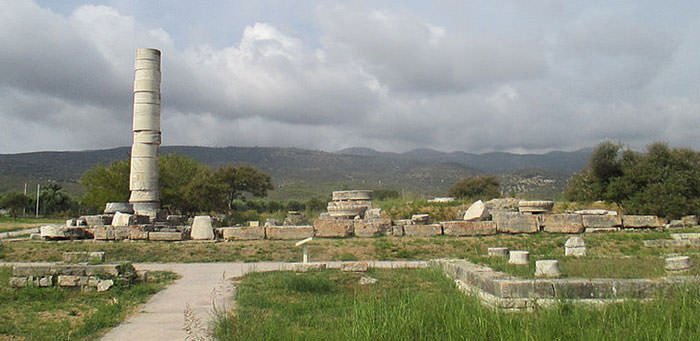
#10 HERA IS OFTEN PORTRAYED AS A JEALOUS WIFE IN POPULAR CULTURE
Unlike Greek myths which portray Hera as a person with great complexity, in popular culture, she is often depicted just as a nagging, jealous, possessive and sometimes evil wife of Zeus. Hera features in the popular book and movie series Percy Jackson and the Olympians. She is portrayed as a goddess with a certain hatred to all demigods, especially Jason and Thalia Grace. In the video game God of War III, Hera is shown as an evil, ungrateful drunk, and she is eventually killed by the series protagonist Kratos. Heracles or Hercules was Hera’s stepchild, and her nemesis in many ways. In several movies made for television as well as the later popular TV series Hercules: The Legendary Journeys, Hera is a near constant foe of Hercules, which is in keeping with her similar role in ancient Greek mythology.

